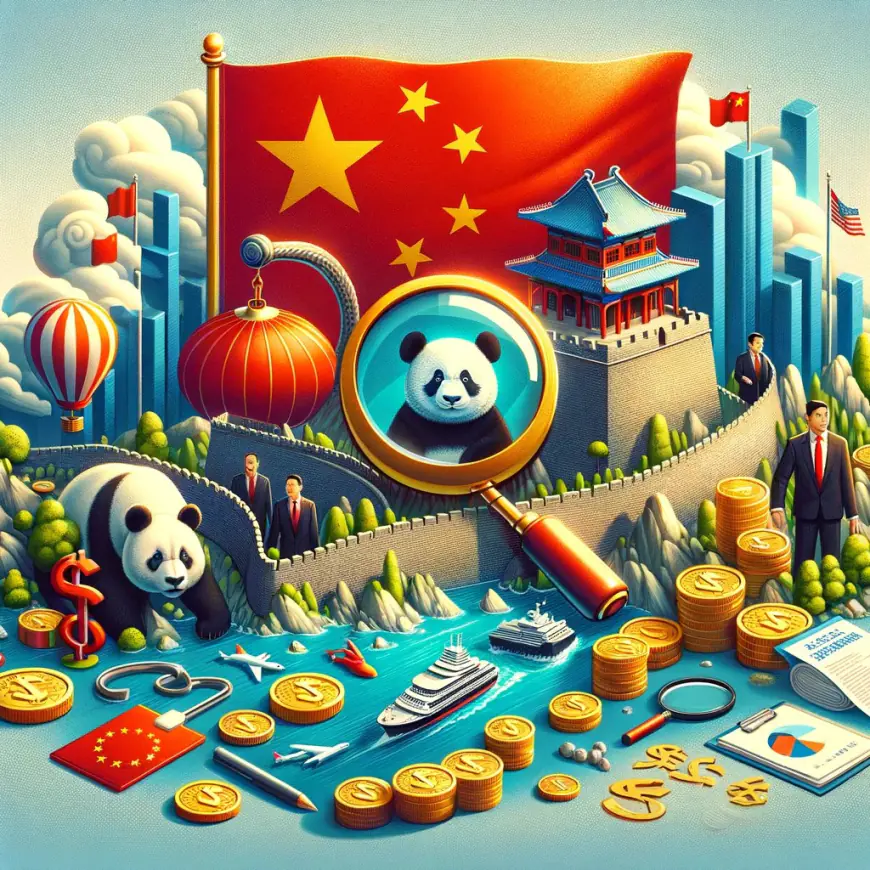China strengthens oversight on offshore investment funds
Amid a tumultuous financial landscape, China has decided to grip the reins tighter on capital maneuvering beyond its borders, particularly focusing on offshore investment funds. This strategic move comes as a countermeasure to the relentless market downturn that has left investors and regulators alike scrambling for stability. China Navigating Through Capital Control Waters China’s financial […]

Amid a tumultuous financial landscape, China has decided to grip the reins tighter on capital maneuvering beyond its borders, particularly focusing on offshore investment funds. This strategic move comes as a countermeasure to the relentless market downturn that has left investors and regulators alike scrambling for stability.
China Navigating Through Capital Control Waters
China’s financial watchdogs are not just barking orders from the sidelines; they’re diving deep into the mechanics of funds that flirt with foreign securities, putting a leash on the capital outflow that seemed to be slipping through their fingers. It’s not a blanket ban, but a strategic pause, as about a third of these globe-trotting funds have put up a “Sorry, we’re closed” sign to retail investors, aiming to safeguard the interests of these investors and ensure the smooth sailing of fund operations.
The whispers from the Shanghai Stock Exchange to fund managers about dialing down the sales of these overseas adventure tickets weren’t just casual chitchat over tea. It was a clear signal—demand for these offshore excursions had hit the ceiling, and it was time to cool down the engines. The backdrop to this unfolding drama is a domestic equity market that’s been more roller coaster than serene river, pushing investors to cast their nets into international waters in search of greener pastures.
The Quota Quandary and Regulatory Ripple
The allure of foreign markets has been undeniable, with retail investors flocking to these funds, leading to a scenario where demand is outpacing the government-set quotas for offshore investments. It’s like everyone showed up for the party, but the venue can only hold so many. Public records have laid bare the fact that a significant chunk of these QDII funds, including those steered by juggernauts like JPMorgan Asset Management and Manulife Investment Management, have either slammed the brakes on new sales or put a cap on them.
But the plot thickens as the narrative extends beyond these fund suspensions. The Shanghai Stock Exchange, taking the baton from regulators, has spotlighted “abnormal trading” in the ETF arena, particularly those ETFs that have been mirroring the highs and lows of indices like the MSCI USA 50, Nasdaq 100, and Japan’s Nikkei 225. This isn’t just a slap on the wrist; it’s a full-blown crackdown aimed at ensuring that the dance of supply and demand doesn’t turn into a mosh pit of volatility.
Moreover, China’s tight leash on QDII quotas has stoked the fires of competition among investors eyeing a piece of the international pie, leading to some ETFs being valued more like rare artifacts than financial instruments. With Beijing’s quota ceiling barely nudging from its perch since 2021, the hunger for these offshore investments has reached what some might call “frenzy” levels.
As the curtain falls on this act of the financial drama, China’s bold moves to tighten the reins on offshore investment funds reveal a narrative rich with strategic interventions, regulatory foresight, and a keen eye on the stability of the domestic market. The ripple effects of these decisions will undoubtedly shape the contours of China’s financial landscape, weaving a tale of resilience, regulation, and the relentless pursuit of economic equilibrium.
What's Your Reaction?









































































































